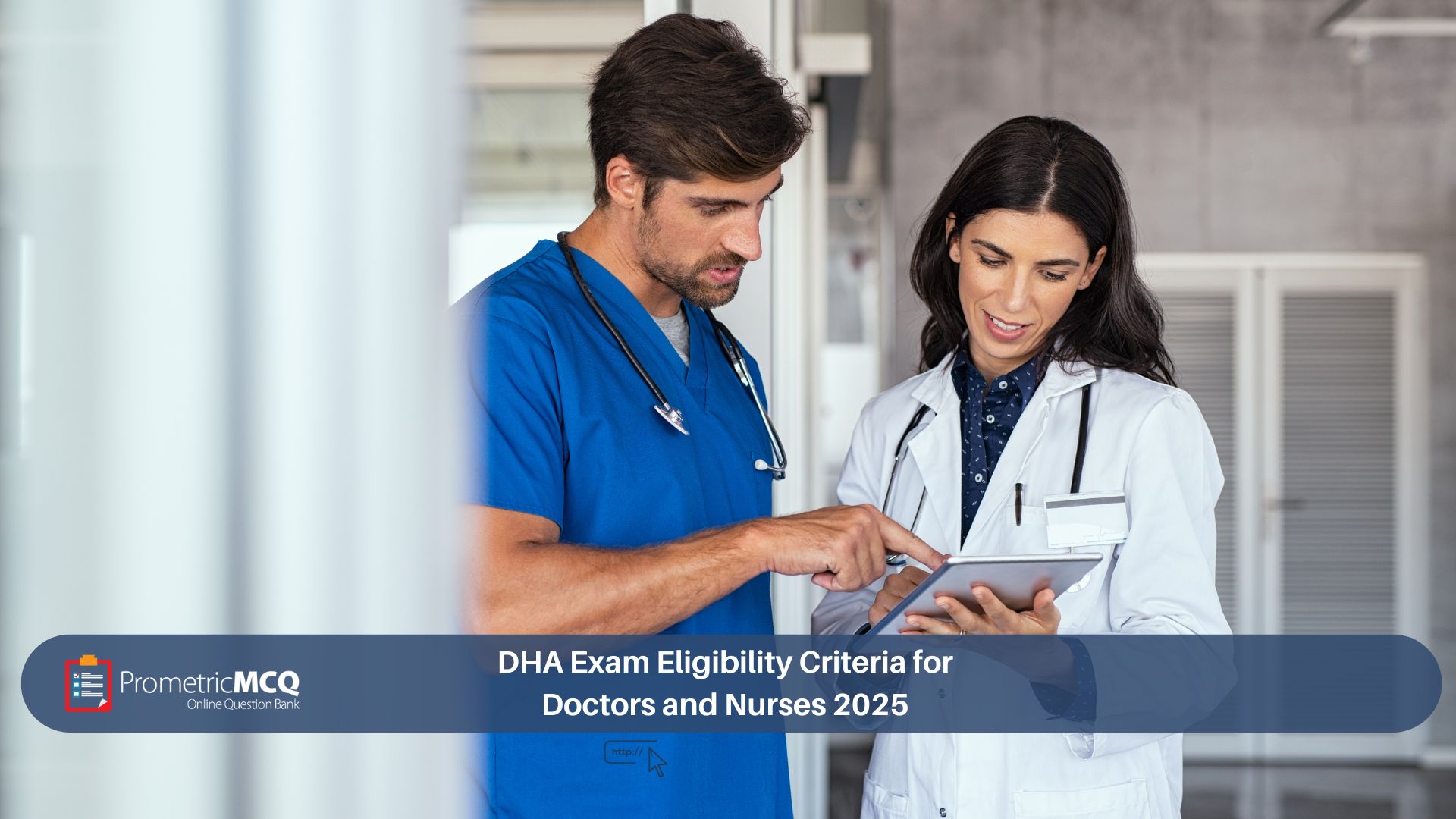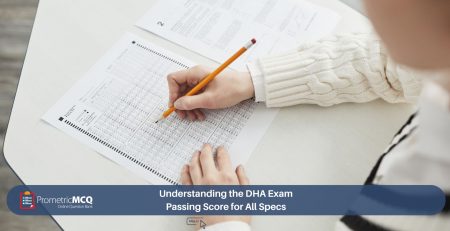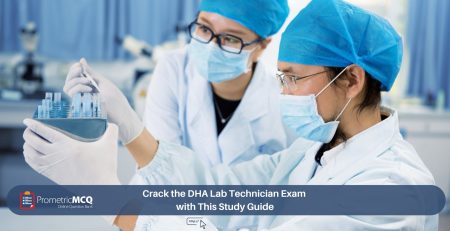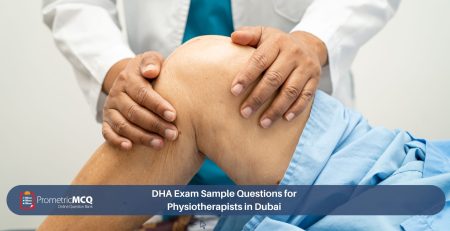
DHA Exam Eligibility Criteria for Doctors and Nurses 2025
fatima@prometricmcq.com2025-09-14T15:03:27+00:00Table of Contents
ToggleDHA Exam Eligibility Criteria for Doctors and Nurses 2025
Embarking on a healthcare career in Dubai is an exciting prospect, offering access to cutting-edge technology, diverse patient populations, and a high standard of living. However, before you can even begin your DHA exam preparation, you must first navigate a critical and meticulous hurdle: the eligibility criteria. The Dubai Health Authority (DHA) has established a comprehensive set of requirements to ensure that every doctor and nurse practicing in the Emirate meets the highest standards of professional competence and qualification.
Understanding these criteria is not just a formality; it is the foundational first step of your journey. A misinterpretation of the experience requirements or a missing document can lead to significant delays, added expense, and immense frustration. This guide is designed to be your definitive resource for understanding the DHA eligibility criteria for doctors and nurses in 2025. We will provide a detailed, step-by-step breakdown of the educational qualifications, clinical experience, and licensing prerequisites, helping you assess your eligibility with confidence and prepare your application for a smooth and successful verification process.
Key Takeaways on DHA Eligibility
- Experience is Non-Negotiable: The DHA has strict minimum clinical experience requirements post-internship. Experience gaps may need to be justified.
- Good Standing is Mandatory: You must hold a valid, active license in your home country or country of last employment, along with a Certificate of Good Standing (CGS).
- PSV is a Deep Dive: The Primary Source Verification (PSV) via DataFlow is a thorough check of all your credentials directly from the issuing institution. Ensure all your documents are authentic and verifiable.
- Tiered Requirements: Eligibility criteria differ based on your title (e.g., General Practitioner vs. Specialist Doctor, or Registered Nurse vs. Assistant Nurse). Know which category you fall into.
- Official PQR is the Ultimate Guide: The DHA’s Professional Qualification Requirements (PQR) is the official document outlining all criteria. This guide is based on it, but always cross-reference with the official source for any updates.
Understanding the Core Components of DHA Eligibility
Before diving into the specifics for doctors and nurses, it’s essential to understand the three pillars of DHA eligibility that apply to all healthcare professionals:
- Educational Qualifications: You must have graduated from a recognized and accredited university or institution. The DHA maintains a list of approved institutions, but generally, degrees from major universities worldwide are accepted.
- Professional Experience: This is a critical component. The DHA requires a minimum number of years of recent, continuous clinical experience in your specific field. This experience must be after your house job/internship.
- Professional Licensure & Good Standing: You must have an active and valid license to practice in your home country and/or the country of your last employment. Furthermore, you must obtain a Certificate of Good Standing (CGS) from each medical regulatory body you have been registered with.
The entire eligibility and application process is managed through the DHA’s online portal, Sheryan. Familiarizing yourself with this portal early on is a crucial first step.
DHA Eligibility Criteria for Doctors (Physicians) in 2025
The criteria for doctors are tiered, meaning the requirements become more stringent as you move from a General Practitioner to a Specialist or Consultant. Our guide on how to apply for the DHA exam for a GP doctor provides further detail on the application itself.
1. General Practitioner (GP)
- Educational Qualification: Must hold a primary medical degree (MBBS, MD, or equivalent) from a recognized university. The program must have been a minimum of five years in duration.
- Internship: A mandatory one-year supervised clinical internship (house job) is required post-graduation. This must be a rotating internship covering major specialties like Medicine, Surgery, Pediatrics, and OB/GYN.
- Clinical Experience: A minimum of two years of continuous clinical experience is required *after* completing the internship. This experience should be in a general practice setting, such as a hospital’s general medicine department or a primary care clinic.
- Licensure: Must hold a valid license to practice as a GP in their home country or country of last employment.
- Good Standing: A Certificate of Good Standing from the relevant medical council is mandatory.
2. Specialist Physician
- Educational Qualification: In addition to the primary medical degree (MBBS/MD), candidates must hold a recognized postgraduate specialization degree (e.g., MD, MS, DNB, MRCP, FRCS, or equivalent).
- Tiered Experience Requirements: The DHA categorizes countries into Tiers 1, 2, and 3 based on their healthcare system’s structure and postgraduate training programs.
- Tier 1 (e.g., UK, USA, Canada, Australia): Typically, holding a CCT (Certificate of Completion of Training) or American Board Certification may require minimal post-specialization experience.
- Tier 2 (e.g., India, Pakistan, Egypt with certain qualifications): Generally requires three years or more of clinical experience in the specialty *after* obtaining the specialization degree.
- Tier 3: May require more extensive post-specialization experience.
- Licensure: Must hold a valid Specialist license.
- Good Standing: CGS from the medical council is required.
3. Consultant Physician
- Educational Qualification: Must hold a primary medical degree and a highly regarded postgraduate qualification from a Tier 1 country (e.g., CCT, American/Canadian Board Certification).
- Clinical Experience: Typically requires a minimum of five years of clinical experience as a Specialist Physician *after* obtaining the specialization qualification. This experience must be in a reputable hospital or healthcare setting.
Important Note on Experience Gaps
The DHA prefers continuous clinical experience. If you have a gap in your employment of more than six months to a year, you may be required to provide a detailed justification or evidence of continuing medical education (CME) during that period. For those looking to test their knowledge, preparing with DHA General Practitioner MCQs is a great way to assess your clinical readiness.
DHA Eligibility Criteria for Nurses in 2025
Nursing roles in Dubai are also tiered, primarily differentiating between Registered Nurses, Assistant Nurses, and Midwives. Our guide to the Prometric exam for nurses offers a broad overview of the entire process.
1. Registered Nurse (RN)
- Educational Qualification: Must hold a Bachelor of Science (BSc) in Nursing from a recognized university. The program duration should be a minimum of three years. A Diploma in Nursing may be considered if it is from a highly ranked program and followed by extensive experience, but a BSc is the standard.
- Clinical Experience: A minimum of two years of recent and continuous post-graduation clinical experience as a Registered Nurse in a hospital or relevant clinical setting is required.
- Licensure: Must have a valid and active nursing license from their home country or country of last employment.
- Good Standing: A Certificate of Good Standing from the nursing council where they are currently registered is essential.
2. Assistant Nurse (AN)
- Educational Qualification: Must hold a Diploma in Nursing or a related health field. The program duration should be at least 18 months.
- Clinical Experience: A minimum of one year of post-graduation clinical experience as an Assistant Nurse is required.
- Licensure: Must be registered and licensed as an Assistant Nurse or a similar title in their home country.
- Good Standing: A CGS from the relevant nursing/health council is mandatory. Preparing with specific materials for the DHA assistant nurse exam can significantly improve your chances.
The Primary Source Verification (PSV) Process
Once you submit your application on the Sheryan portal and pay the initial fees, your documents are sent to the DataFlow Group for PSV. DataFlow will contact your universities, employers, and licensing bodies directly to verify the authenticity of your documents. This process can take several weeks to months, so it is crucial that the contact information you provide for these institutions is accurate and that your documents are clear and legitimate.
Frequently Asked Questions (FAQs) on Eligibility
For the initial eligibility application and DataFlow process, you typically only need clear scanned copies of your original documents. However, educational document attestation by the UAE Ministry of Foreign Affairs will be required later in the process, usually once you have a job offer and are proceeding with visa formalities.
If your university is not explicitly listed but is a government-recognized and accredited institution, you can still apply. The DHA and DataFlow will conduct a thorough verification. Having your degree recognized by an international body can help your case.
No. The DHA requires hands-on, paid clinical experience where you were directly involved in patient care. Volunteer roles, observerships, or purely academic/research positions do not typically count towards the minimum clinical experience requirement.
Not necessarily, but you will need to provide a strong justification. A signed affidavit explaining the reason for the gap (e.g., maternity leave, family care) and evidence of any continuing medical education (CME) or courses taken during that time can help strengthen your application.
No. You must have fully completed your degree, your internship (for doctors), and have obtained your professional license before you can begin the application process. You must meet the minimum experience requirements post-licensure.
A CGS is a letter issued by your country’s medical or nursing council that confirms you are a registered professional in good standing with no disciplinary actions or malpractice cases against you. It is usually valid for six months from the date of issue. You must request this directly from your licensing authority.
While the DHA exam is in English, there is currently no mandatory requirement for an English language test like IELTS or OET for most applicants as a prerequisite for the exam itself. However, proficiency is expected, and some employers may require it for hiring.
The most up-to-date PQR is available on the official Dubai Health Authority website. It is a comprehensive PDF that details the requirements for all healthcare professions. It is highly recommended to download and review the section relevant to your specialty.
You will need a CGS from every medical/nursing council you have been registered with in the last five years. You must also have a valid license from the country where you last practiced.
For GP and Registered Nurse roles, the DHA prefers broad-based experience in a general hospital or primary care setting. Highly specialized experience may be acceptable but could require additional clarification. It’s best to highlight how your skills are transferable to a general patient population in your CV.
Conclusion: Your First Step to a Dubai Career
Navigating the DHA’s eligibility criteria is a detailed and demanding process, but it is the essential first step towards achieving your professional goals in Dubai. By carefully reviewing the requirements for your specific profession, gathering your documents meticulously, and being proactive with the application process, you can set yourself up for a smooth journey. Once your eligibility is confirmed, you can then focus your full attention on the next challenge: preparing for and acing the Prometric exam to finally earn your DHA license.
Eligibility Confirmed? The Next Step is Preparation.
Once you are deemed eligible, the real challenge begins. Prepare with confidence using our comprehensive, up-to-date question banks and study materials tailored for your specific DHA exam.










